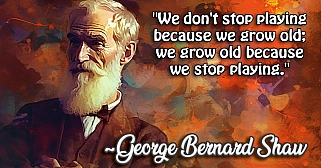George Orwell: The Visionary Writer Behind 1984 and Animal Farm

George Orwell
Early Life and Influences
George Orwell, born Eric Arthur Blair on June 25, 1903, in Motihari, British India, would grow to become one of the most influential writers of the 20th century. His father, Richard Blair, worked in the Opium Department of the Indian Civil Service, and his mother, Ida Mabel Blair, brought Eric and his older sister Marjorie back to England when he was just a year old.

Growing up in Henley-on-Thames, Eric experienced a childhood marked by a modest but socially conscious environment. His early education at St Cyprian’s School in Eastbourne was formative but harsh, with the young Blair developing a deep-seated aversion to the British class system and authority figures, themes that would later permeate his writing.
Orwell's scholarship to Eton College in 1917 was a pivotal moment in his life. At Eton, he was exposed to a broad intellectual environment, and his love for literature flourished. However, he didn't pursue higher education, choosing instead to join the Indian Imperial Police in Burma, where he served from 1922 to 1927. This experience, fraught with moral dilemmas and the harsh realities of colonialism, profoundly influenced his worldview and future works.
From Eric Blair to George Orwell
In 1927, disillusioned with imperialism, Blair resigned from the police force and returned to England, determined to become a writer. He adopted the pen name George Orwell, a tribute to the River Orwell in Suffolk, a region he loved, and began his literary career with a series of essays and reviews.

Orwell's early works, including "Down and Out in Paris and London" (1933), were autobiographical, reflecting his experiences living among the poor and working class. His commitment to understanding and documenting the lives of the marginalized set him apart from many contemporary writers. This book, published under his pen name, provided a gritty, unvarnished look at poverty and destitution in the two cities, cementing his reputation as a writer deeply concerned with social justice.
Orwell’s Political Awakening
Orwell's political consciousness deepened in the 1930s as he witnessed the rise of totalitarian regimes in Europe. He traveled to Spain in 1936 to fight against Francisco Franco's fascist forces in the Spanish Civil War. Orwell joined the POUM militia, a Marxist socialist group, and fought on the front lines. His experiences in Spain, including witnessing the betrayal of the socialist movement by the Soviet-backed communists, profoundly shaped his anti-totalitarian stance.

These experiences were vividly recounted in his book "Homage to Catalonia" (1938), where Orwell detailed the complexities and betrayals within the Spanish Civil War. The book was a critical reflection on the dangers of authoritarianism and the betrayal of revolutionary ideals, reinforcing his commitment to democratic socialism.
The Road to Dystopia
The political turmoil of the 1930s and 1940s fueled Orwell's creativity and resolve to expose the dangers of totalitarianism. During World War II, he worked for the BBC, where he saw firsthand the use of propaganda to manipulate public opinion. This period of his life was crucial in shaping the ideas that would culminate in his most famous works.
Animal Farm: Published in 1945, "Animal Farm" is a satirical allegory that uses farm animals to critique the corruption of revolutionary ideals in the Soviet Union. The story of the animals' rebellion and the subsequent rise of the tyrannical pig, Napoleon, is a biting commentary on the nature of power and the betrayal of the working class. The book was an immediate success, earning Orwell widespread acclaim and solidifying his position as a leading political writer.
1984: Orwell's masterpiece, "1984," published in 1949, is a chilling depiction of a totalitarian state where Big Brother, the Party, and thought police maintain absolute control over every aspect of life. The novel explores themes of surveillance, censorship, and the manipulation of truth, offering a stark warning about the dangers of unchecked political power. "1984" has become a cornerstone of dystopian literature, its terminology and concepts, such as "Big Brother," "doublethink," and "thoughtcrime," entering the global lexicon.

Legacy and Influence
George Orwell's works have left an indelible mark on literature and political thought. His unflinching critiques of totalitarianism, authoritarianism, and social injustice resonate with readers worldwide, transcending time and political boundaries. Orwell's ability to blend literary craftsmanship with profound political insight ensures that his works remain relevant in contemporary discussions about freedom, power, and the role of government.
Impact on Literature: Orwell's unique style, characterized by clarity, precision, and a commitment to truth, has influenced countless writers and journalists. His essays, such as "Politics and the English Language," offer timeless advice on the importance of clear and honest communication, warning against the use of language to obscure truth and manipulate public opinion.

Political Thought: Orwell's exploration of the mechanisms of oppression and his advocacy for democratic socialism have had a lasting impact on political thought. His works continue to be studied in the context of political science, history, and philosophy, providing valuable insights into the dynamics of power and resistance.
Personal Life and Health Struggles
Orwell's personal life was marked by both love and hardship. He married Eileen O'Shaughnessy in 1936, and the couple shared a deep intellectual and emotional bond. Eileen supported Orwell's writing and political activities, and their marriage was a source of stability for him. Tragically, Eileen died in 1945 during a routine surgery, leaving Orwell devastated.
In 1949, Orwell married Sonia Brownell, an editor at Horizon literary magazine. Their marriage provided him with companionship and care during the final months of his life. Orwell's health had been deteriorating for years due to tuberculosis, a condition exacerbated by his years of poverty, malnutrition, and the harsh conditions he endured while fighting in Spain.
Despite his declining health, Orwell continued to write until his death on January 21, 1950. He left behind a legacy of literary excellence and political insight, his works serving as a testament to his relentless pursuit of truth and justice.

Orwell's Enduring Relevance
George Orwell's legacy endures not only through his novels and essays but also through his profound impact on cultural and political discourse. His ability to foresee the potential dangers of technological surveillance and government overreach has made "1984" particularly resonant in the age of digital technology and global surveillance.
Cultural Impact: Orwell's influence extends beyond literature into popular culture, with references to his work appearing in films, television, music, and art. The concepts of "Orwellian" and "Big Brother" have become shorthand for describing oppressive government practices and invasive surveillance, highlighting the lasting relevance of his warnings.
Educational Influence: Orwell's works are widely taught in schools and universities around the world, his themes of freedom, power, and resistance continuing to inspire and challenge students. His commitment to clear and honest communication serves as a model for aspiring writers and journalists, emphasizing the importance of language in shaping our understanding of reality.
Orwell's Continued Importance
George Orwell's journey from Eric Blair, a young boy in colonial India, to one of the most influential writers of the 20th century is a testament to his resilience, intellectual curiosity, and unwavering commitment to truth. His works, characterized by their unflinching honesty and profound political insight, continue to resonate with readers and thinkers around the world.
Orwell's legacy as a literary rebel and visionary remains as powerful today as it was in his lifetime. His writings offer a stark reminder of the dangers of totalitarianism and the enduring importance of defending freedom and truth. As we navigate the complexities of the modern world, Orwell's works serve as a guiding light, challenging us to question authority, seek truth, and strive for a more just and equitable society.


